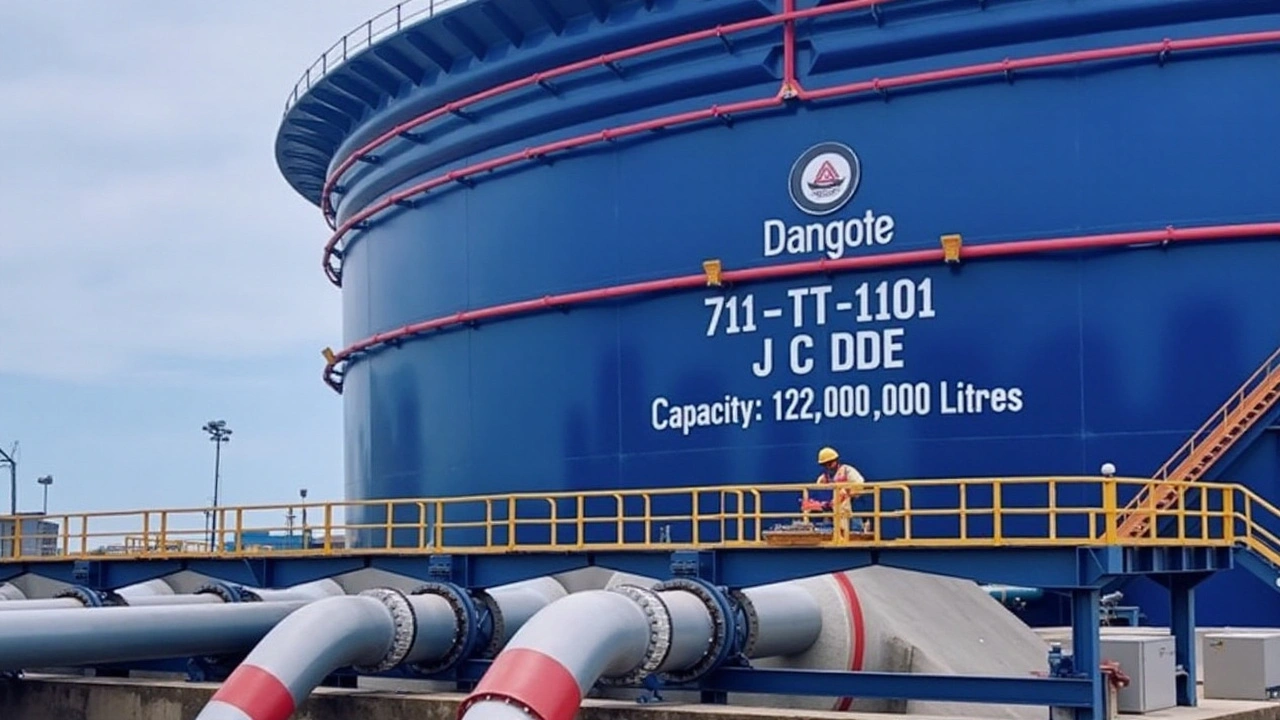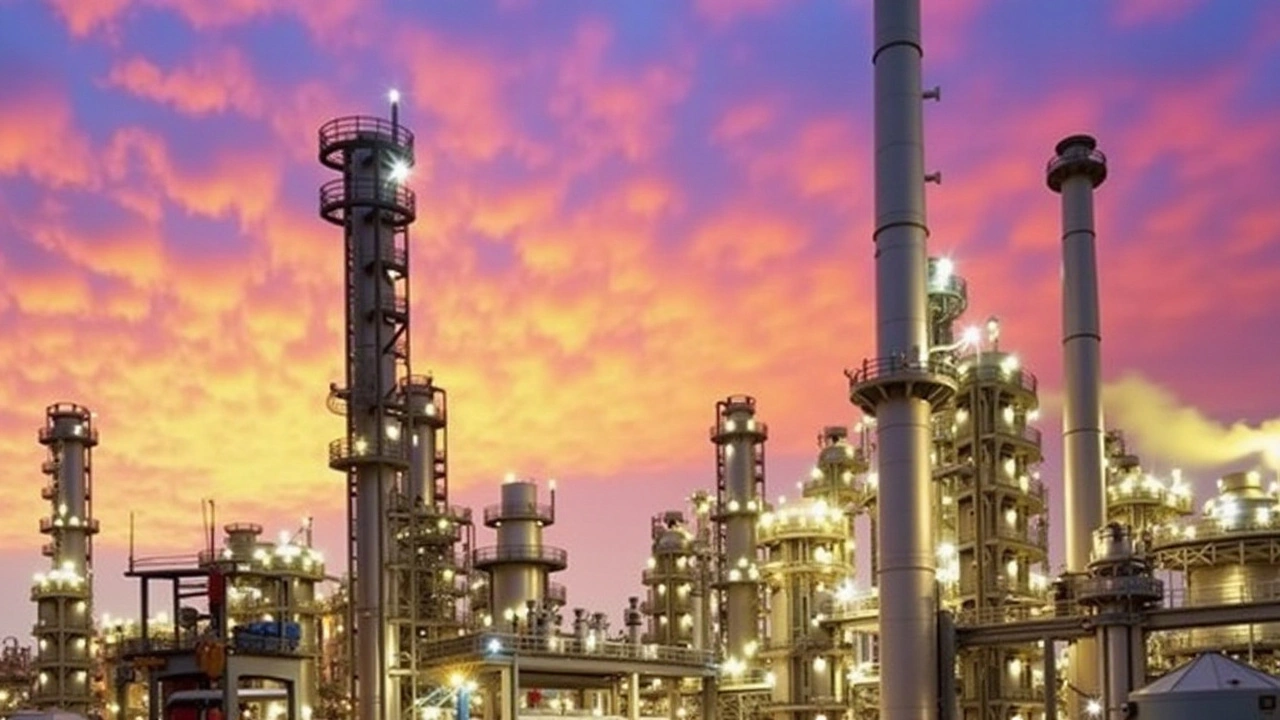Introduction To Dangote Refinery's Impact
The launch of petrol production at Dangote refinery marks a monumental event in Nigeria’s energy sector. Owned by Aliko Dangote, Africa’s richest person, the refinery boasts a massive capacity of 650,000 barrels of oil per day. As the refinery gears up to start sales, it promises to alleviate the chronic fuel shortages plaguing the nation. Nigerians have long suffered from gasoline scarcity due to underperforming refineries, persistent maintenance issues, and inefficiencies within the country’s fuel infrastructure.

Historical Context of Nigeria's Fuel Crisis
For over two decades, Nigeria has faced a continuous energy dilemma. Despite being Africa’s largest oil producer, the nation has barely managed to sustain its local fuel market. The country’s four existing refineries, intended to meet local demand, have been undergoing endless turnaround maintenance yet remain largely dysfunctional. Consequently, Nigeria has spent billions annually on fuel imports, with yearly expenditures surpassing $10 billion. This situation has been a heavy drain on the country’s foreign exchange reserves and has caused significant economic strain.
The Dangote Refinery: A Game Changer
The commissioning of the Dangote refinery signals a major shift. Positioned near Lagos, this state-of-the-art facility is expected to produce large volumes of petrol, significantly altering Nigeria’s fuel landscape. Once fully operational, the refinery will produce around 330,000 barrels of petrol daily, meeting over 1% of global road fuel demand. This is particularly critical for Nigeria, whose consumption hovers around 66 million liters of petrol per day – a demand previously met mainly through imports.
Key Production Metrics and Future Projections
Initial output projections for the refinery appear promising. According to Energy Aspects, production will start at about 90,000 barrels daily in the fourth quarter of this year, scaling up to nearly 250,000 barrels per day in the second half of the following year. Crucial to reaching these figures is the operation of a residue fluid catalytic cracker unit, which will play a key role in refining heavier petroleum fractions into lighter products. As with any megaproject, the Dangote refinery faced delays, but according to plant officials, they remain on track with their production ramp-up schedule.
Economic and Social Benefits
The benefits of local petrol production are manifold. Economically, it will reduce Nigeria’s dependence on imported fuel, saving substantial foreign exchange and strengthening the naira. By producing petrol locally, the refinery is set to bolster the nation's self-sufficiency, providing stable fuel supplies for households and businesses alike. This, in turn, will have a ripple effect on the entire nation's economy, boosting industries that rely heavily on energy as a cost input.
Aliko Dangote’s Vision and Commitment
Aliko Dangote’s investment and vision for an energy-independent Nigeria is nothing short of groundbreaking. With the refinery’s anticipated success, he aims not just to meet local demand but also to position Nigeria as a net exporter of refined petroleum products. This ambition aligns with broader goals of national economic development, ensuring energy security and creating numerous jobs.
| Production Phase | Estimated Output (barrels/day) |
|---|---|
| Initial Phase (Q4 2023) | 90,000 |
| Mid-Next Year | 250,000 |
| Full Capacity | 330,000 |
The Market and Environmental Challenges Ahead
While the outlook is optimistic, challenges remain. The global fuel market is currently influenced by factors ranging from geopolitical tensions to evolving environmental policies. For the Dangote refinery to sustain its impact, it will need to navigate these external variables effectively.
Moreover, the push towards greener energy solutions globally poses another set of challenges. How Nigeria balances its local fuel needs with international environmental commitments will be crucial. The refinery will need to continually adapt to remain relevant in an increasingly eco-conscious world.
Conclusion: A Landmark Development
The Dangote refinery's launch of petrol production marks a significant milestone for Nigeria and Africa at large. Beyond resolving the country's nagging fuel crisis, it sets the stage for economic revitalization and future sustainability. As we observe Nigeria’s journey towards energy independence, the Dangote refinery stands as a beacon of hope and progress.



Mark L
September 4, 2024 AT 13:37Orlaith Ryan
September 4, 2024 AT 13:46Arvind Pal
September 5, 2024 AT 04:03John Bartow
September 5, 2024 AT 07:26J Mavrikos
September 5, 2024 AT 19:03Pete Thompson
September 6, 2024 AT 22:29Chris Richardson
September 7, 2024 AT 15:42Mark Archuleta
September 8, 2024 AT 09:39Stuart Sandman
September 9, 2024 AT 04:18Jacquelyn Barbero
September 10, 2024 AT 10:44DJ Paterson
September 10, 2024 AT 17:29Nikhil nilkhan
September 12, 2024 AT 01:52Damini Nichinnamettlu
September 13, 2024 AT 14:17Richard Berry
September 14, 2024 AT 05:03toby tinsley
September 15, 2024 AT 02:33Sandy Everett
September 15, 2024 AT 08:20